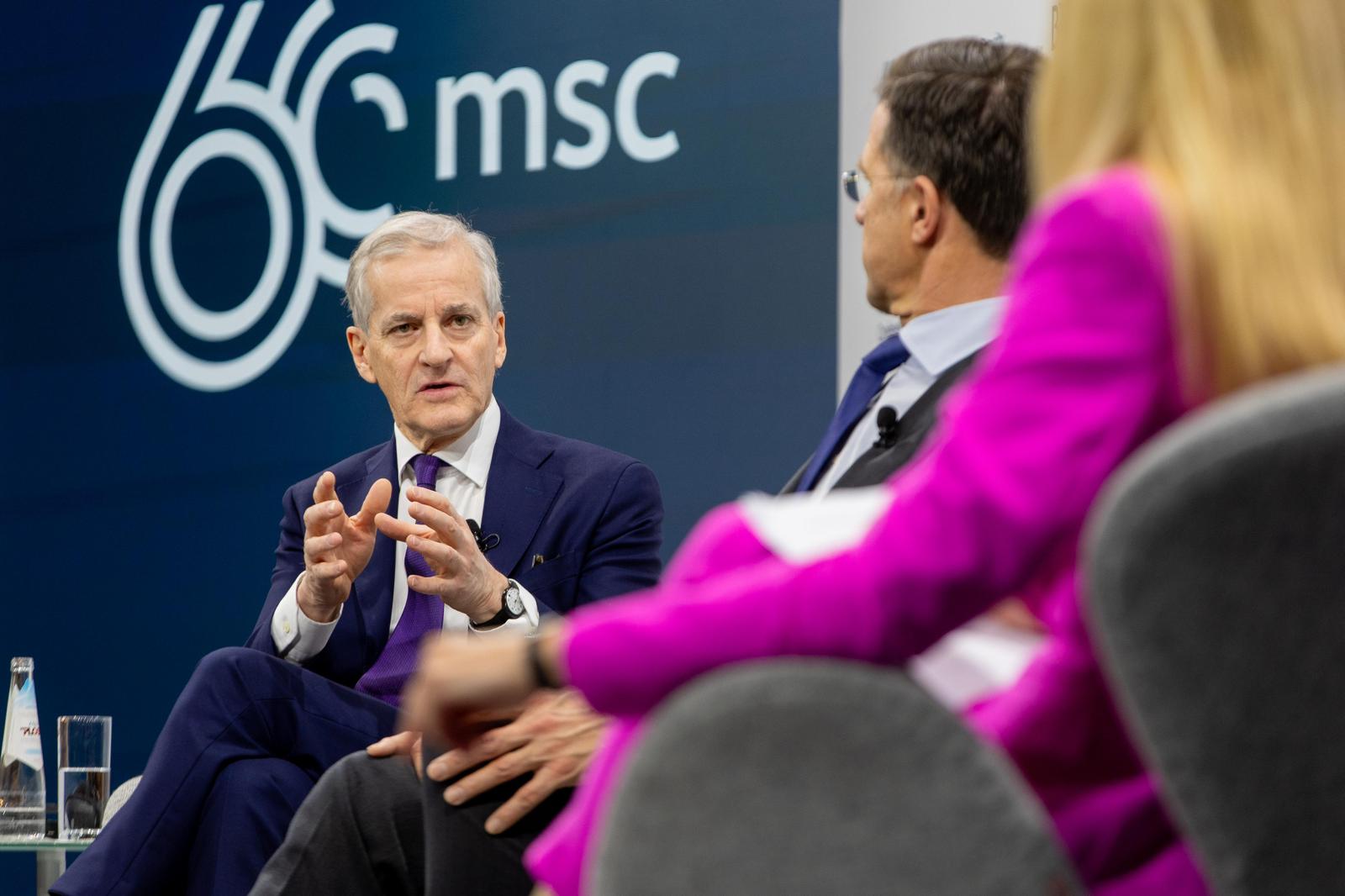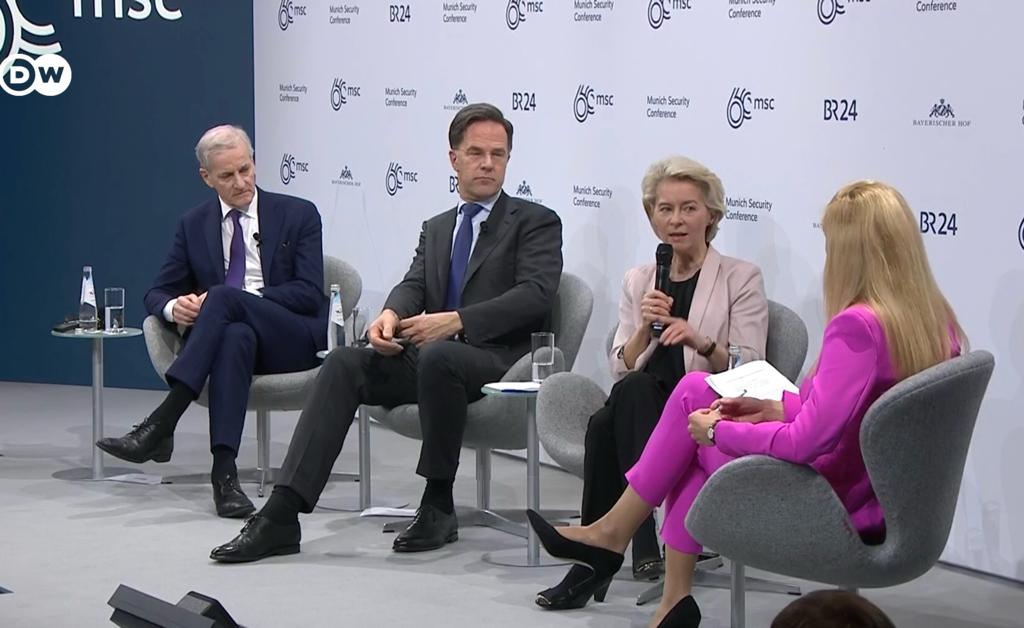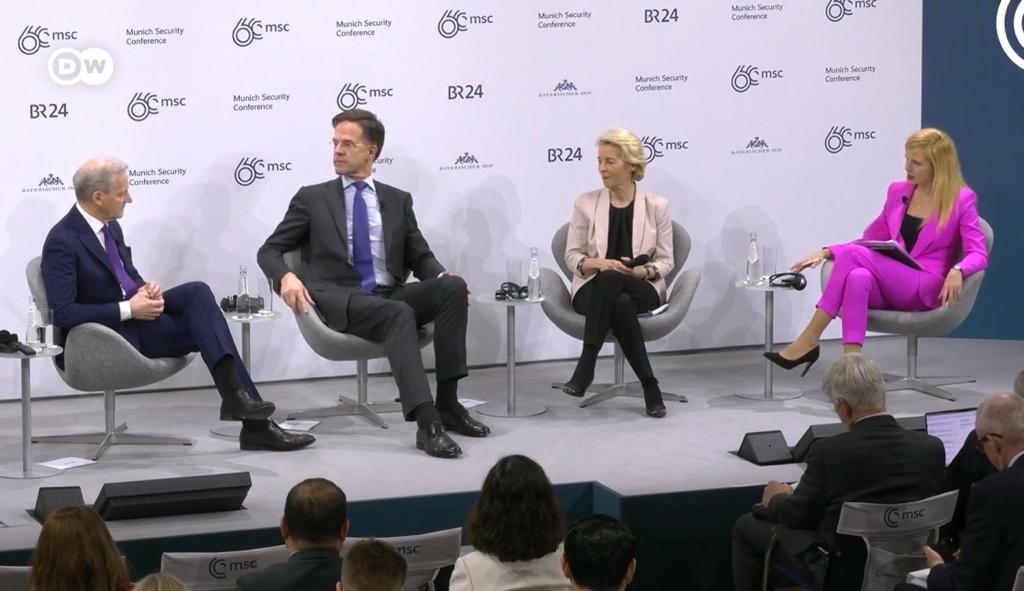WSF at Munich Security Conference 2024
WSF at Munich Security Conference 2024
The anniversary edition of the Munich Security Conference will go down in history not only because of Alexei Navalny’s wife Yulia’s symbolic speech, delivered after his death. Representatives of the Casimir Pulaski Foundation noted the atmosphere of pessimism and awareness of a changing era posing new challenges for Europe’s security architecture. The events in Munich, co-organized by the Foundation resulted in important political declarations, such as Ursula von der Leyen’s pledge to create a portfolio dedicated to Defence in the next European Commission.
The 60th anniversary edition of the Munich Security Conference (MSC) concluded on February 18th. A Polish think tank – the Casimir Pulaski Foundation (CPF), was one of its official partners. The activity of CPF was not only limited to the participation of its representatives in the event the Chairwoman of the Warsaw Security Forum, Prof. Katarzyna Pisarska and WSF program Director Bartłomiej Kot. The Foundation also hosted a closed dinner with the participation of NATO Secretary General Jens Stoltenberg and German Defense Minister Boris Pistorius, as well as a number of ministerial guests and parliamentarians from Poland, Lithuania, Estonia, Iceland, France, Germany, Great Britain, and the USA. Prof. Pisarska also moderated a panel on the MSC main stage with the President of the European Commission, Ursula von der Leyen; Prime Minister of the Netherlands, Mark Rutte; and Prime Minister of Norway, Jonas Gahr Støre.
Throughout the three days of the conference, much was said from the main stage regarding the state of the European security architecture, the future of NATO in the face of Donald Trump’s potential second presidency term, and the need to continue supporting Ukraine in its fight against Russian aggression. Symbolically, this year’s MSC was dominated by Yulia Navalnaya’s powerful speech, delivered moments after the information about the death of her husband Alexei in a Russian penal colony was published.
“I had the opportunity to personally talk to Yulia Navalnaya (…) The news of Alexei’s death shocked everyone present at the Conference. Her speech was very spontaneous,” commented Prof. Pisarska
In addition to this evocative speech, the main stage also witnessed concrete political declarations. It is worth noting one from the President of the European Commission, Ursula von der Leyen. In response to a question from Prof. Pisarska about the need to establish the office of the EU Commissioner for Defense for the first time, she publicly confirmed that, if elected, this is in her second-term plans.
“It is important for Central and Eastern European countries to have a good portfolio. And that is a good portfolio” – added von der Leyen.
As CPF experts point out, filling this position with a candidate from Central and Eastern Europe is a high-stakes game for the diplomacy of the region’s countries and an important symbol of its growing role within the European Union.
The external perception of the Conference will be dominated by a sense of pessimism and the poly-crisis surrounding the Western world. Among those present in Munich, disappointed voices were mixed with the fact that few politicians can look horizontally at the current state of international relations. Europeans miss the seriousness of the situation in the Middle East; Americans are immersed in discussions about their internal problems; and Ukraine, struggling against Russian aggression, is tired of empty words of support not followed by military support that could bring a breakthrough on the battlefield. Chairman of the Foreign Affairs Committee of the Sejm of the Republic of Poland Paweł Kowal was present at the Foundation’s event, commenting on the matter with a quote from an insurgent poem by Zbiegniew Jasiński. “No applause needed! We demand ammunition.”; German Taurus cruise missiles are commonly mentioned as an example of such a weapon. However, there is no consensus on the part of Western European politicians either to grant them to Kyiv or to allocate Russian assets frozen in the West for further financing of Ukraine’s defence.
Moreover, even on an issue as symbolic as signing the bilateral security agreement with Ukraine, the French-German tandem failed to reach an agreement to present them together at the Conference in the presence of Volodymyr Zelensky. French President Emmanuel Macron was also absent in Munich this year.
“We are witnessing the end of the belle epoque that began in 1989. We must permanently change our mentality, get used to the constant presence of discussions about armaments, to the geographical proximity of the war. This war will not come only when we are ready for it,” commented Director of WSF Bartłomiej Kot on his feelings following the closed discussions program.
The delegation from the CPF, under the leadership of Prof. Katarzyna Pisarska, made sure that the Polish voice strengthened faith in NATO solidarity as the basis of the security of the Republic of Poland. It should be noted as a success that this view was supported by all representatives of the Republic of Poland participating in the discussions, coming from both sides of the Polish political aisle.
Energy Security as the Foundation for a Just Transition in Post-Industrial Regions
The transformation of post-industrial regions toward sustainable, low-emission economies hinges on one critical factor: energy security. This theme, explored during a high-level panel discussion at the last edition of the Warsaw Security Forum, highlighted the need to transition from coal and other high-emission energy sources to cleaner alternatives such as renewable and nuclear energy. Achieving this shift will require not only technological innovation but also strategic planning, international cooperation, and robust regulatory frameworks.
Polish presidency in the EU: a chance for a sustainable energy transition
The evolving landscape of decarbonization and energy security, with its profound regional and global implications, business operations in Poland. ORLEN is eager to engage in discussions about energy transition and the EU regulations required to facilitate it. The company has prepared a position paper highlighting the key challenges: preserving the competitiveness of the EU market, championing technological neutrality, ensuring access to decarbonization financing, and shifting away from overly prescriptive regulatory approaches.
WSF2024: Summary
The 11th edition of the Warsaw Security Forum (WSF), held on October 1-2, 2024, successfully brought together 2,600 participants from 90 countries, 30 governmental delegations, and over 250 speakers to address critical issues surrounding European and transatlantic security. With 1 million combined online views and over 14,000 live viewers, the WSF reaffirmed its importance as a leading platform for security dialogue in Europe.









